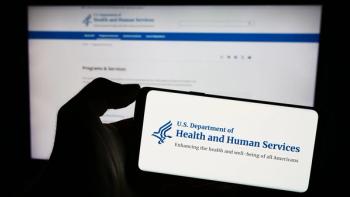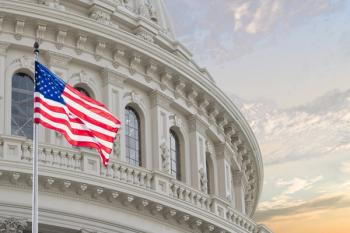
Ensign's win signals horse slaughter bill return
Las Vegas - The influence of the nation's 39th president and his family could not thwart DVM and incumbent U.S. Sen. John Ensign's bid for re-election.
LAS VEGAS — The influence of the nation's 39th president and his family could not thwart DVM and incumbent U.S. Sen. John Ensign's bid for re-election.
Nevada's Ensign torpedoed democratic hopeful Jack Carter, son of former President Jimmy Carter, by securing 55 percent of the state vote.
"I wasn't running against just one person, but the whole family. They brought him a lot more attention than he probably would have gotten," Ensign tells DVM Newsmagazine in an exclusive interview.
Throughout the campaign, Ensign says he visited "every corner of the state" and faced off with Carter in debates over statewide issues and personal character. Carter attacked Ensign for his support of the Bush administration and essentially "ran more against Bush than he ran against me," Ensign chides. This allowed Ensign to hammer home his key election focuses — healthcare, education funding and immigration, he contends.
Learning of the election outcome in his hotel room after enduring "little suspense," Ensign says he grew impatient waiting for Carter's call for concession. He delivered his victory speech, and later heard from his opponent's camp.
"I felt pretty good all throughout the campaign, but you never take the voters for granted," Ensign says. "I think it is important to earn their vote each time."
Ensign continues his support of a legislative push to ban horses from slaughter for human consumption. Contrary to the stance of the American Veterinary Medical Association, the bill was successfully voted through the House of Representatives and awaits Senate approval. "I think this is the first issue where I've ever parted ways with some people in the AVMA," Ensign says.
Currently on hold with the Senate appropriations committee, Ensign advises the bill will either be addressed by year end, or pushed for review next year.
Another focus of Ensign's is the Animal Fighting Prohibition Enforcement Act of 2005, which aims to make the transportation of animals across state lines for the purpose of fighting a felony under federal law.
His first term, Ensign hopes, made him wiser and more independent.
"I try to put the interests of my state and country before my party now. If a Democrat has a good idea, just because they're a Democrat, you shouldn't reject that," Ensign says. "I think the American people are really tired of that. They want you to stand up for what you believe in."
Ensign's earned respect characterizes the outcome of his first term, reasons Jack Finn, Ensign's communications director. "In one term, he has established himself as a leader among his colleagues. It is a great honor, but more importantly, a responsibility," he adds.
Ensign says his DVM career remains a strong foundation for needed dimplomatic skills in Washington.
"There was one statement taught to us in school that is as true in veterinary medicine as it is in politics: People do not care how much you know until they see how much you care. We're at war, and I've probably been to close to 20 funerals, and the compassion that you have to display as a veterinarian, just the whole ability to empathize is vital."
The ongoing representation of DVMs in government is positive, Ensign adds.
"We have too many lawyers and having more veterinarians, people from different professions and trades is a very, very healthy thing for our government."
And the trend is spreading to other countries, as Ensign advises he also met two French senators toting veterinary degrees.
"We're taking over the world," Ensign laughs.
Newsletter
From exam room tips to practice management insights, get trusted veterinary news delivered straight to your inbox—subscribe to dvm360.




